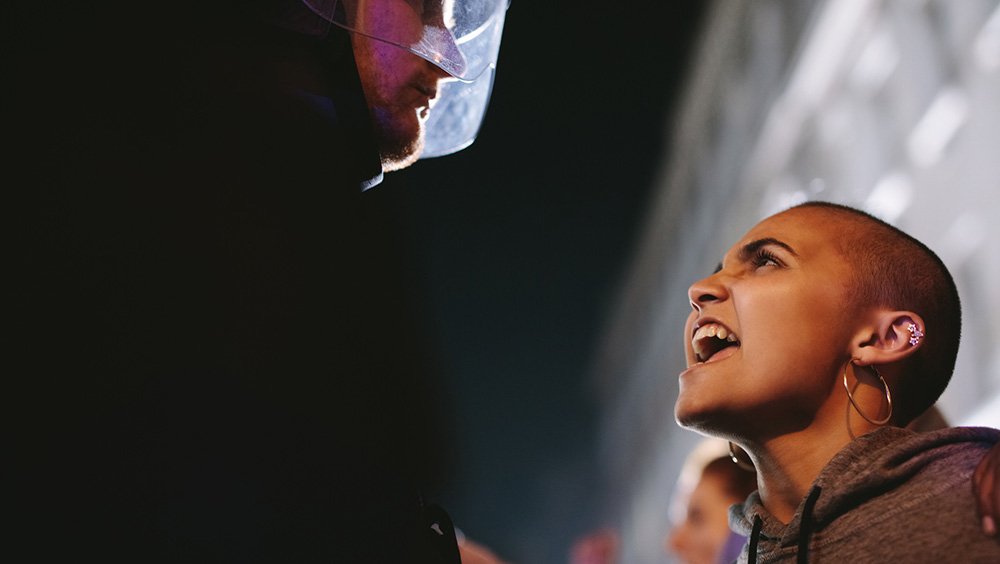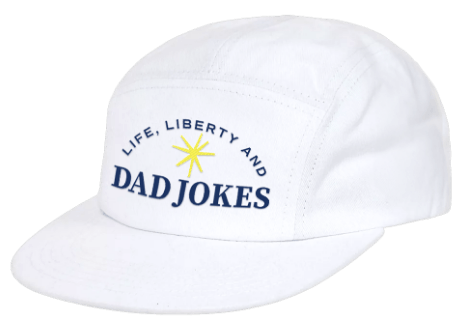Cursing at Police: Free Speech or Arrestable Offense?

Cursing at police officers may be protected by the First Amendment, which protects the ability of citizens to criticize government officials — even offensively and excessively.
However, sometimes, when individuals curse at police, they are arrested for disorderly conduct, breach of the peace, interfering with the official duties of officers or other criminal offenses. The line between protected speech and unprotected disorder when it comes to profanity directed at law enforcement can be hazy and uncertain.
In the post, we explore the connections between cursing at police, free speech and the First Amendment, and discuss when swearing at law enforcement may — and may not — be protected.
Can you curse at the police? A First Amendment analysis
History of antiprofanity laws
Many antiprofanity laws have their origins in blasphemy laws, as colonies and then states passed laws prohibiting individuals from speaking ill of the church and God. Take this Massachusetts law as an example:
“Whoever willfully blasphemes the holy name of: God by denying, cursing or contumeliously reproaching God, his creation, government or final judging of the world, or by cursing or contumeliously reproaching Jesus Christ or the Holy Ghost, or by cursing or contumeliously reproaching or exposing to contempt or ridicule, the holy word of God contained in the holy scriptures shall be punished by imprisonment in jail for not more than one year or by a fine of not more than three hundred dollars, and may also be bound to good behavior.”
Massachusetts was not alone, as other states had similar laws that prohibited cursing the Creator. States also began passing laws prohibiting disorderly conduct or breach of the peace. The idea was that offensive language was more a type of unlawful conduct than a form of protected speech.
Traditionally, people could be arrested for cursing at police officers. Consider the plight of Jehovah’s Witness Walter Chaplinsky, who was arrested for breach of the peace after calling a city marshal in Rochester, New Hampshire, an “(expletive) fascist” and “(expletive) racketeer.” The U.S. Supreme Court unanimously determined in Chaplinsky v. New Hampshire (1942) that Chaplinsky had uttered “fighting words,” which the court defined as “words which by their very utterance inflict injury or cause an immediate breach of the peace.” The court explained that fighting words do not contribute to the sharing of ideas and have little to no social value.
Supreme Court protects the right to curse at a police officer
In subsequent decades, the court significantly narrowed the fighting words doctrine, most notably in Cohen v. California (1971). There, the court reversed the conviction of Paul Robert Cohen for wearing a jacket bearing the words “(Expletive) the Draft” (the full profanity appeared on the jacket). Justice John Marshall Harlan II wrote that the government could not “cleanse public debate” and warned that government officials “might soon seize upon the censorship of particular words as a convenient guise for banning the expression of unpopular views.” Most famously, he declared that “one man’s vulgarity is another’s lyric.”
The state of California argued that Cohen’s act of wearing the jacket with the profane word was a form of fighting words and, thus, unprotected speech. But the Supreme Court rejected that argument, pointing out that Cohen did not direct the “(Expletive) the Draft” message at a specific individual but rather as the conveyance of a general, anti-war viewpoint. While not directly related to cursing at police, the Cohen case stands for the principle that the fighting words doctrine is limited to direct, face-to-face personal insults.
Years later in an interview with Freedom Forum, Cohen said that for years he wanted to distance himself from the case (even changing his name), but later he realized he was proud of having stood up to the government to protect personal freedom.
The police are held to a higher standard
A few years later, the court also reversed a disorderly conduct conviction in Lewis v. City of New Orleans (1974). Mallie Lewis was convicted under a city law that prohibited using “obscene or opprobrious language” to police officers. Lewis was arrested after she yelled obscenities at a police officer who asked her husband to produce his driver’s license. The court determined that this law infringed on First Amendment freedoms because it was not confined to fighting words.
Supreme Court Justice William Brennan ruled that the Louisiana Supreme Court failed to confine the statute to just fighting words. But an even more significant point came from a concurring opinion by Justice Lewis Powell. Powell pointed out that the recipients of the profane speech were police officers. He explained, “A properly trained officer may reasonably be expected to exercise a higher degree of restraint than the average citizen, and thus be less likely to respond belligerently to fighting words."
This principle from Powell’s concurring opinion has become law across the United States of America. In other words, oftentimes people can curse at the police and not face criminal charges. However, if the person shakes their fist at the police, spits on the police, or engages in other types of unprotected conduct, then the person can still face criminal charges.
First Amendment right to criticize government officials
The Supreme Court also ruled that Raymond Wayne Hill, a gay-rights activist in Houston, had a First Amendment right to criticize police treatment of his friend. Hill was upset when he saw police officers treating his friend in a way that he thought was unfair. Hill confronted the officers and told one of them, “Why don’t you pick on someone your own size?” The police then arrested Hill for violating an ordinance that prohibited interfering with the official duties of an officer.
While Hill did not utter profanity, the court’s decision in City of Houston v. Hill (1987) established an important precedent for those who seek to sue government officials after being arrested for their profane speech. In ruling for Hill, the court wrote that “the First Amendment protects a significant amount of verbal criticism and challenge directed at police officers.” In his majority opinion, Brennan explained that police officers, because of their specified training, are expected to exercise a greater deal of restraint when dealing with unruly individuals. Furthermore, Brennan explained that “[t]he freedom of individuals verbally to oppose or challenge police action without thereby risking arrest is one of the principal characteristics by which we distinguish a free nation from a police state.”
No right to use profanity to incite imminent lawless action or utter a true threat
This doesn’t mean that profane language is always a form of protected speech. Some types of profanity that involve direct, face-to-face personal insults cross the line from protected speech into unprotected fighting words.
But there are two other unprotected categories of speech that are related to fighting words. In a sense, they are cousins in the First Amendment family. They are incitement to imminent lawless action and true threats. A person does not have a First Amendment right to use profanity to incite imminent lawless action. The First Amendment doesn’t protect starting a riot. Similarly, true threats are not protected speech. If a person utters a true threat and uses profanity, that profanity is also not protected speech.
David L. Hudson, Jr. is a First Amendment fellow with the Freedom Forum.
Can Candidates Lie in Political Ads? A First Amendment Analysis
1A in Action: Elle DeLeonibus, the Power of Petition — and Chickens
Related Content
Here to top your best dad joke.


